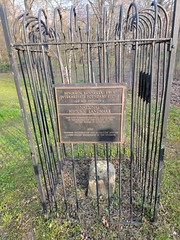White Cats are Usurpers. Deng Spoke of “Yellow Cats and Black Cats”
What Deng really said: “It doesn’t matter whether it is a yellow cat or a black cat, as long as it catches mice, it is a good cat.” “不管黄猫黑猫,只要捉住老鼠就是好猫”
Notwithstanding the US musical group Gramophonic and their excellent song Deng Xiaoping (watch it on Youtube), the yellow cats do deserve more recognition!

Very few Chinese people know this. You can blow the minds of your Chinese friends as you stick up for the yellow cats. Send them off to check the reference in the Selected Works of Deng Xiaoping! Were they asleep in class when this was covered at the Party School?
Deng Xiaoping in his famous quote, borrowed from an old Sichuan saying, spoke of yellow cats and black cats, not black cats and white cats. Very few Chinese and Western sources get this detail right! After reading about it, I looked it up in Deng’s Selected Works (available online on the People’s Daily website). Yup, white cats are out of luck.
Deng, who was born in Guangyuan in Sichuan Province might learned that saying at home: it is an old Sichuan saying. Deng in a 1962 speech that can be found in the Selected Works of Deng Xiaoping 《怎样恢复农业生产》,《邓小平选集》第1卷) borrowed the saying “It doesn’t matter whether it is a yellow cat or a black cat, as long as it catches mice, it is a good cat.” “不管黄猫黑猫,只要捉住老鼠就是好猫” from famed PLA General Liu Bocheng. Liu was from near Chongqing, then part of Sichuan Province.
Deng in his 1962 speech urged his Chinese Communist Party colleagues to take a more pragmatic line in agriculture after Mao’s mistaken policies led to the starvation of tens of millions of people. Deng was speaking out to support the contract responsibility system in agriculture that incentivized agricultural production by allowing peasants to keep part of what they produced. Unfortunately, Liu Shaoqi’s pragmatic policy eventually failed. Mao defeated the pragmatists in his revolt against the Party in what became the Great Proletarian Cultural Revolution.
After Mao died, the contract responsibility system became an essential part of China’s economic recovery. Some sources will say (there is a story popular in the PRC about several peasants in a village in Anhui Province inventing it secretly by themselves in the late 1970s) that the contract responsibility system started only after Mao died but one can find other sources showing that Liu Shaoqi was trying to implement in earlier — certainly in the early 1960s and possibly in the mid 1950s as well. But getting beaten back for revisionism each time and only winning out posthumously after his murder by the Red Guards during the Cultural Revolution.
1962年7月2日,中共中央书记处开会讨论“包产户”问题。1962年7月7日,邓小平接见出席共青团三届七中全会全体同志时,谈到了农业生产管理政策的调整问题,他引用刘伯承经常说起的四川谚语:“不管黄猫黑猫,只要捉住老鼠就是好猫”来表述他对恢复农业生产和包产到户的看法。
This soon became known as the black cat, white cat policy, The colors changed. Why? Politics takes command and the then widely-accepted theory of the Two Whatevers liangge fanshi: “We will resolutely uphold whatever policy decisions Chairman Mao made, and unswervingly follow whatever instructions Chairman Mao gave” (凡是毛主席作出的决策,我们都坚决维护;凡是毛主席的指示,我们都始终不渝地遵循)). During the Cultural Revolution Deng was criticized for this pragmatic approach — his critics called it an idealistic theory of production. 唯生产力论 Since Communists were supposed to be materialists, not idealists, this was considered a serious charge at the time. See the December 12, 2008 issue of Xinxi Shibao — 邓小平白猫黑猫论成为改革开放思想理论标志
I found more on the color change in another article after 崔松@songcui6 told me that the Sichuan yellow cats lost out because of Mao Zedong of Hunan (don’t know that the cat colors are there).
The Story Behind Comrade Deng Xiaoping’s “Black Cat, White Cat” Theory
邓小平同志“黑猫白猫论”背后的故事
Source: Elderly Life News 老年生活报 via News of the Communist Party of China
In 1962, a variety of forms of production, such as contract household responsilty system and contract responsibility fields, arose spontaneously in some rural areas in response to famine and natural disasters. [Note: Liu Shaoqi and Deng proposed the contract responsibility system in the early 1952-3 and then again in 1961 as the Great Famine began to subside. Both times they were criticized by Mao for their pragmatism and the innovation was cut short. Perhaps to protect local actors, these are sometimes called spontaneous peasant movements in some PRC sources. Finally in the late 70s the household responsibility system was re-invented by — you guessed it — spontaneously by peasants in Anhui Province. End note.]
These changes caused great controversy within the Chinese Communist Party.
On July 2, the Secretariat of the Central Committee of the Communist Party of China (CPC) met to discuss the issue of “production in packages to households. Deng Xiaoping believed that whichever form of production could more easily and quickly restore and develop agricultural production should be adopted. He quoted the Sichuan proverb often mentioned by Liu Bo Cheng: “No matter what is ia a yellow cat or the black cat, as long as it catches the mouse, it is a good cat.” Chen Yun and others agreed with this. This was only a speech at an internal meeting, and the “cat theory” did not spread.
On July 7, 1962, when Deng Xiaoping received all the comrades attending the Third Seventh Plenary Session of the Communist Youth League, he once again borrowed this proverb to express his views on the resumption of agricultural production and the contracting of production to households. The speech was later included in Deng Xiaoping’s Selected Writings.
This was the first time that the “cat theory” was made public. It was later revised to: “No matter black cat or white cat, a good cat is a good cat if it catches a mouse.
“Yellow cat and black cat, as long as you catch a mouse is a good cat.” This is a common saying in rural Sichuan. The “Heavenly Storehouse” tianfu had more fields, more food, more rats and more cats than elsewhere. Farmers keep cats, in order to exterminate rats to protect their crops. So, yellow cats, black cats, as long as they can catch mice, is a good cat. The “cat theory” is on the basis of this consensus was born and gradually spread.
Deng Xiaoping’s fellow villagers and comrades Liu Bocheng, whenever the war is imminent, often out of the mouth is this phrase.
The “cat theory” was criticized and became famous
Deng Xiaoping’s two speeches in 1962 were soon retracted after Mao Zedong’s criticism him for advocating an “only productivity matters theory” .
“During the Cultural Revolution, the metaphor of “yellow cat and black cat” was associated with the of “only productivity matters theory” and was criticized.
The “cat theory” was criticized, but it promoted the spread of the theory.
Around 1976, Mao Zedong criticized Deng Xiaoping by name. Mao Zedong said: “He is a person who does not grasp the class struggle, and has never mentioned this outline. Or ‘white cat, black cat’ ah, whether it is imperialism or Marxism.” The “black cat and white cat theory” thus became famous. [Note: As 崔松 noted, here Mao was the Revisionist, not Deng.]
After the Third Plenary Session of the Eleventh Central Committee, the “cat theory” became a theoretical symbol of China’s shift of social focus to economic development.
In the early 1980s, Bo Yibo asked Deng Xiaoping what he thought of the “black cat and white cat” theory. Deng Xiaoping replied, “First, I do not retract it now; second, I was speaking to the situation at the time.”
In 1985, Deng Xiaoping was re-elected as Time Magazine’s Person of the Year, and the phrase “No matter black cat or white cat, a good cat is a good cat if it catches a mouse” was published in Time Magazine. The influence of the “cat theory” spread worldwide.
1962年7月7日,
邓小平接见出席共青团三届七中全会全体同志时,谈到了农业生产管理政策的调整
问题,他引用刘伯承经常说起的四川谚语:“不管黄猫黑猫,只要捉住老鼠就是好
猫”来表述他对恢复农业生产和包产到户的看法。
I first heard about what Deng actually said in 1962 from an article on this Chinese government website about finance.
邓小平白猫黑猫论开启30年飞速发展
资本运作官方网站政府信息网・(2011-4-29 9:45:58)・国内新闻
一句民间谚语与一个改革口号
邓小平的“白猫黑猫”论,最早出现要回溯至上世纪60年代。
四川农村有一句俗语:“黄猫黑猫,只要捉住老鼠就是好猫。天府之国,田多
粮多,鼠多猫亦多。农人养猫,为的是灭鼠护粮。所以,黄猫也罢,黑猫也罢,只
要能捉住老鼠,就是好猫。邓小平的同乡和战友刘伯承,每逢大战在即,经常脱口
而出的就是这句话。邓小平作为刘伯承的老战友兼同乡,对于刘帅常说的这句家乡
话,自然十分理解,他将其从军事领域引入到整个社会领域。
1962年,一些农村地区为了应对饥荒和自然灾害,自发产生了包产到户、责
任田等各种各样的生产形式。这些变化,在党内引起较大争论。
1962年7月2日,中共中央书记处开会讨论“包产到户”问题。1962年7月7日,
邓小平接见出席共青团三届七中全会全体同志时,谈到了农业生产管理政策的调整
问题,他引用刘伯承经常说起的四川谚语:“不管黄猫黑猫,只要捉住老鼠就是好
猫”来表述他对恢复农业生产和包产到户的看法。他说:“生产关系究竟以什么形式
为最好,恐怕要采取这样一种态度,就是哪种形式在哪个地方能够比较容易比较快
地恢复和发展农业生产,就采取哪种形式;群众愿意采取哪种形式,就应该采取哪
种形式,不合法的使它合法起来……‘黄猫、黑猫,只要捉住老鼠就是好猫’。” (见
《怎样恢复农业生产》,《邓小平选集》第1卷)
这是邓小平最早在正式场合阐述“白猫黑猫”论这一重要观点,并第一次公之
于众。后来讹传为:“不管黑猫白猫,捉到老鼠就是好猫”。
在“文化大革命”期间,“白猫黑猫”这个比喻却被指责为“唯生产力论”,遭到批判。
“白猫黑猫”论登上美国《时代》周刊
邓小平认为,搞理论争论,就会贻误时机,错过发展机遇。空洞的争论无济
于事,真理只有在实践中才能得到检验,应该大胆地实践,大胆地试,先不要下结
论,干了再说。邓小平这句“不管黑猫白猫,捉到老鼠就是好猫”,风趣幽默、释理
简明的话语把改革面临诸多复杂问题化繁为简,不啻给了社会思维的一副清醒剂。
1978年,十一届三中全会后,随着政治思想路线的改变,“白猫黑猫”论成为
了中国将社会工作重心转移到经济发展上的一个理论标志。
从此,“白猫黑猫”论贯穿了中国整个改革开放,激发了全民的整体的潜能,
在乡镇企业、特区、私营经济、证券等诸多方面都带来了翻天覆地的变化。看看这
一组数据就是最好的证明:1980年末的有关统计显示,坚守在人民公社阵营里边的
产量不增不减,包产到组的地方增产10%到20%;包产到户的地方增产30%到50%。
1986年1月6日,邓小平再次成为美国《时代》周刊年度风云人物。“不管黑猫白
猫,捉到老鼠就是好猫”这句话被摘登在《时代》周刊上,“白猫黑猫”论也随之扩大
到世界,成为世界人民知晓的名言。
1992年春天,88岁的邓小平南巡武昌、深圳和珠海。也就在那一年,“不管黑
猫白猫,捉到老鼠就是好猫”成为坊间最流行的话语。2001年,APEC首脑峰会上,
这句话成为马来西亚总理马哈蒂尔的开场白,寓意亚洲现在最需要的是发展。
“白猫黑猫”论的实干战略
在改革开放之初,人们思想僵化,战战兢兢、裹足不前。中国人形成的一个
习惯性思维,遇事要问一问是社会主义还是资本主义,是无产阶级思想还是资产阶
级思想?如果认定是“资本主义”或“资产阶级思想”,那就要批判,要否定。如果让
这种习惯性的思维继续处以支配地位,那么任何新的改革开放的措施就根本无法推行。
邓小平的“白猫黑猫”论一出,改变了过去凡事都要先以意识形态考量、凡事
都要先从政治着眼、凡事都要先问问教条的思维习惯。“白猫黑猫”论告诉人们,想
问题办事情一切要从实际出发,而不是从条条框框出发;一切要从有利于发展社会
生产力,增强国家综合国力,提高人民生活水平的实际出发,社会主义是靠干出来
的,不是靠讲出来的。“白猫黑猫”无疑倡导了一种实干精神。也正是这个理论的实
干战略,开启了中国人的思想之门,保证了中国的社会稳定和经济发展,使改革开
放取得了伟大成绩。
2004年,英国伦敦外交政策中心发表了乔舒亚・库伯・拉莫的文章《北京共
识》,指出中国崛起的奠基人邓小平曾经说过:“不管黑猫白猫,抓住老鼠就是好
猫”,这句话开启了中国20多年的飞速发展。这20多年来,中国成功地使4亿赤贫人
口脱贫,国力日渐增强,成为世界各国都不能忽视的一个全球性大国,实实在在地
尝到了发展的甜头。
| 邓小平同志“黑猫白猫论”背后的故事 | ||||||||||
| 【字号 大 中 小】【论坛】【打印】【关闭】 | 【字号 大 中 小】【论坛】【打印】【关闭】 | 【字号 大 中 小】【论坛】【打印】【关闭】 | 【字号 大 中 小】【论坛】【打印】【关闭】 | ||||||
| 【字号 大 中 小】【论坛】【打印】【关闭】 | ||||||||||
| 【字号 大 中 小】【论坛】【打印】【关闭】 | ||||||||||
| 【字号 大 中 小】【论坛】【打印】【关闭】 | ||||||||||
| 【字号 大 中 小】【论坛】【打印】【关闭】 | ||||||||||
|  |  |  |  | ||||||
 | ||||||||||
 | ||||||||||
 | ||||||||||
 | ||||||||||
| 一句谚语与一个时代
“不管黑猫白猫,捉到老鼠就是好猫”。 一句民间谚语能够和一个时代联系起来,除了语言本身的直白和传诵感外,更重要的是它来源于群众的切身实践,能够直指群众的深刻需求。 邓小平认为,搞理论争论,就会贻误时机,错过发展机遇。空洞的争论无济于事,真理只有在实践中才能得到检验,应该大胆地实践,大胆地试,先不要下结论,干了再说。“不管黑猫白猫,捉到老鼠就是好猫”。 “猫论”贯穿于改革开放的各个阶段,在很多场合都可以看到它的影子:乡镇企业、特区、私营经济、证券、股票……与此同时,由“猫论”开启的思维之门已经洞开,个体、群体的创造趋于活跃,市场变得丰富起来。 邓小平家中的《双猫图》 西单东南的一处普通四合院,是四川饭店的旧址。当年邓小平最喜欢到四川饭店的宋厅,厅内挂有一幅黑猫白猫图。据称,小平曾在此谈到过姓“资”姓“社”问题。 邓小平家中也挂有一幅《双猫图》(如图)。一只猫毛色雪白、茸毛轻柔,另一只猫毛色乌黑、黑里透亮。画的上方,是几行遒劲苍老的题词:“不管白猫黑猫,会捉老鼠就是好猫。”画者是被誉为“江南猫王”的著名画家陈莲涛。 1984年,邓小平在上海时,得知“江南猫王”仍健在,便托人捎信向陈莲涛致意。陈精心构思,画了一幅《双猫图》,托人敬献给邓小平。 猫有灵性,目光敏锐,活力充足,外柔内刚,这一点跟小平很相像。 坊间流传一种说法,猫有九命,所以邓小平三落三起,每次下落后,都反弹得更高。 党内争论与一句民谚 1992年春天,88岁的邓小平南巡武昌、深圳和珠海。 也就在那一年,“不管黑猫白猫,捉到老鼠就是好猫”成为坊间最流行的话语。2001年,APEC首脑峰会上,这句话成为马来西亚总理马哈蒂尔的开场白,寓意亚洲现在最需要的是发展。 “猫论”溯源,要回溯至上世纪60年代。 1962年,一些农村地区为了应对饥荒和自然灾害,自发产生了包产到户、责任田等各种各样的生产形式。 这些变化,在党内引起较大争论。 7月2日,中共中央书记处开会讨论“包产到户”问题。邓小平认为,哪种生产形式能够比较容易、比较快地恢复和发展农业生产,就采取哪种形式。他引用刘伯承经常说起的四川谚语:“不管黄猫黑猫,只要捉住老鼠就是好猫。”陈云等对此表示赞同。这只是一次内部会议的讲话,“猫论”并没有传播。 1962年7月7日,邓小平接见出席共青团三届七中全会全体同志时,再次借用这句谚语来表述他对恢复农业生产和包产到户的看法。该讲话后收入《邓小平文选》。 这是“猫论”第一次公之于众。后来讹传为:“不管黑猫白猫,捉到老鼠就是好猫。 “黄猫黑猫,只要捉住老鼠就是好猫。”本是四川农村的一句俗语。天府之国,田多粮多,鼠多猫亦多。农人养猫,为的是灭鼠护粮。所以,黄猫也罢,黑猫也罢,只要能捉住老鼠,就是好猫。“猫论”就是在这种共识的基础上应运而生并逐渐流传起来的。 邓小平的同乡和战友刘伯承,每逢大战在即,经常脱口而出的就是这句话。 “猫论”挨批一举成名 邓小平1962年的这两次讲话,不久即因毛泽东批评“搞单干风”收回。 “文化大革命”期间,“黄猫黑猫”这个比喻更被指责为“唯生产力论”,遭到批判。 “猫论”挨批,反而推动了它的传播。 1976年前后,毛泽东点名批评邓小平。毛泽东说:“他这个人是不抓阶级斗争的,历来不提这个纲。还是‘白猫、黑猫’啊,不管是帝国主义还是马克思主义。”“黑猫白猫论”就此成名。 十一届三中全会后,“猫论”成为了中国将社会工作重心转移到经济发展上的一个理论标志。 上世纪80年代初,薄一波曾问邓小平,对“黑猫白猫”这个说法现在怎么看?邓小平回答:“第一,我现在不收回;第二,我是针对当时的情况说的。” 1985年,邓小平再度当选美国《时代》周刊年度风云人物,“不管黑猫白猫,捉到老鼠就是好猫”被摘登在《时代》周刊上。“猫论”的影响扩大到世界。 来源:老年生活报 |
| (责任编辑:李彦增(实习)) |



Pingback: 2022: Party Pragmatism, Party Totalitarianism and Rocks in the River | 高大伟 David Cowhig's Translation Blog
Pingback: PRC Governance: One Organization With Inner/Outer, Party/Government Names | 高大伟 David Cowhig's Translation Blog
Pingback: 2024: Party Control of Universities Tightens Further | 高大伟 David Cowhig's Translation Blog